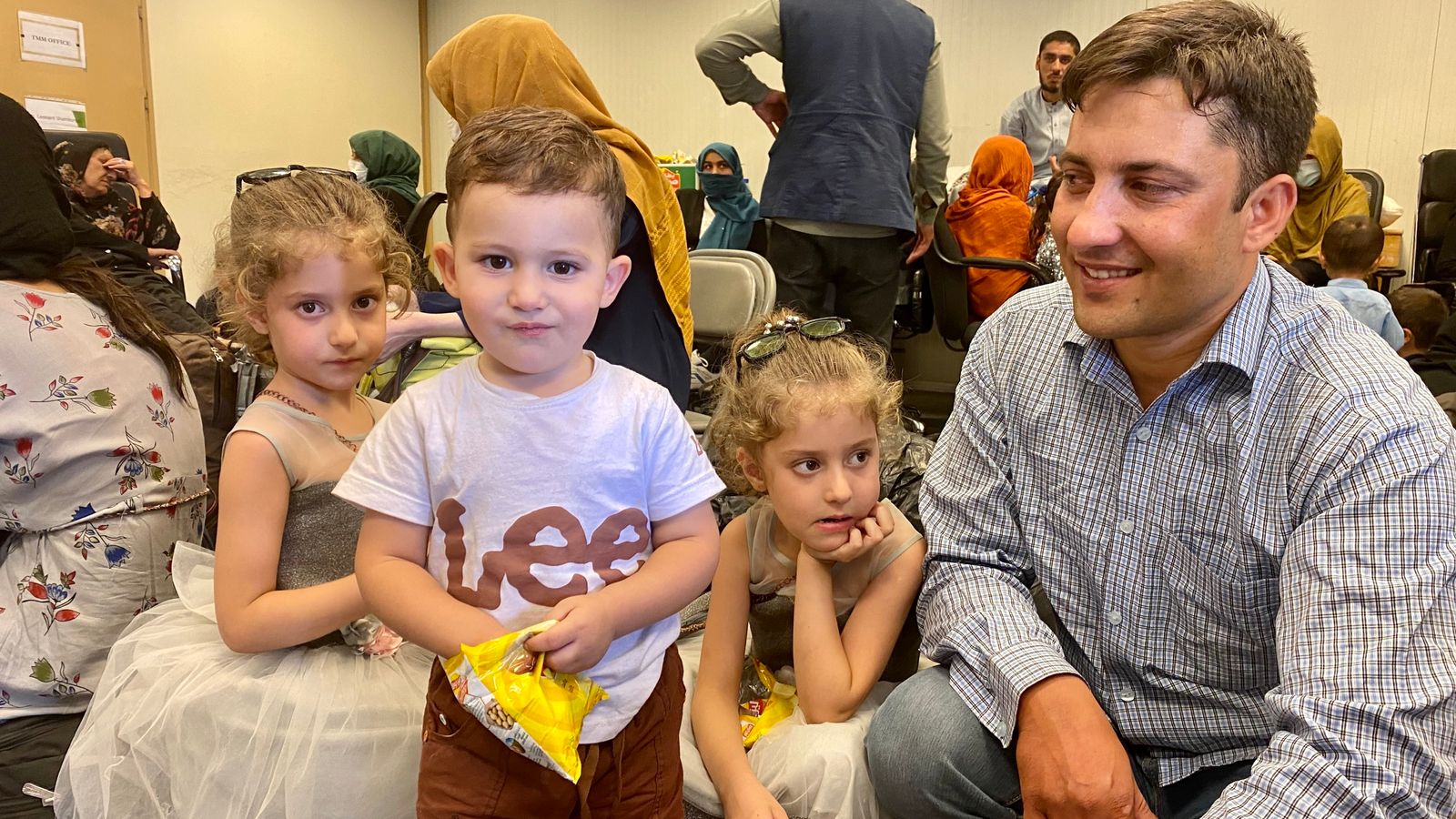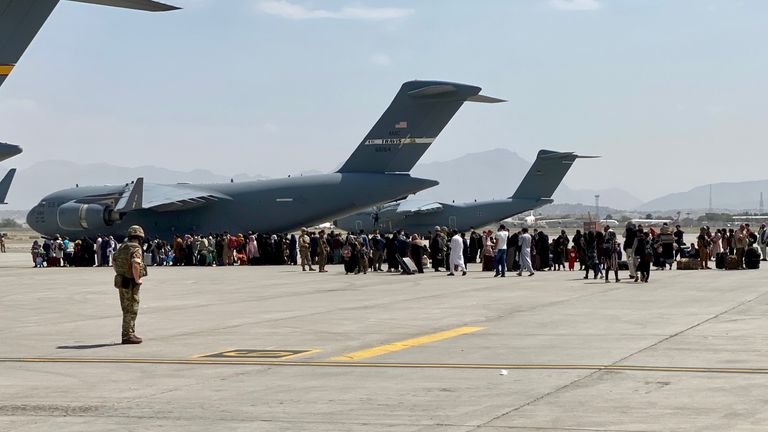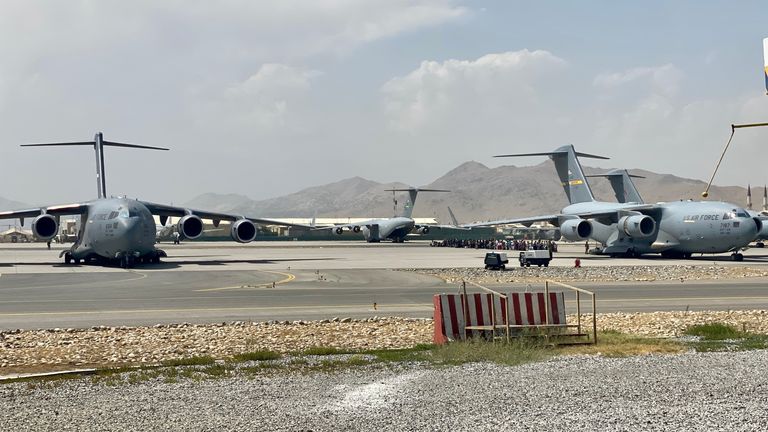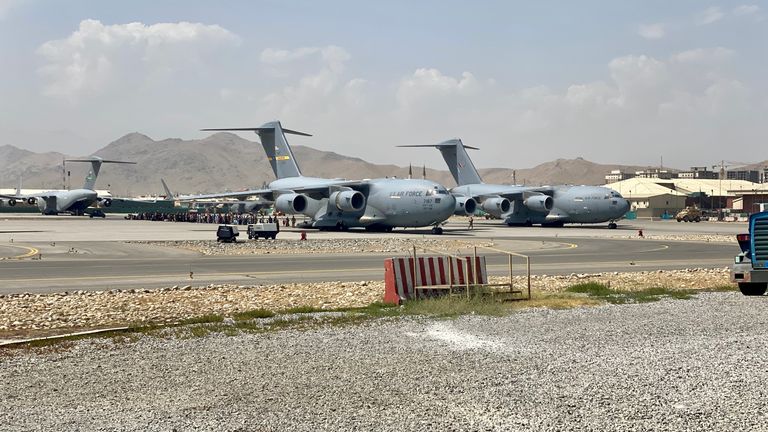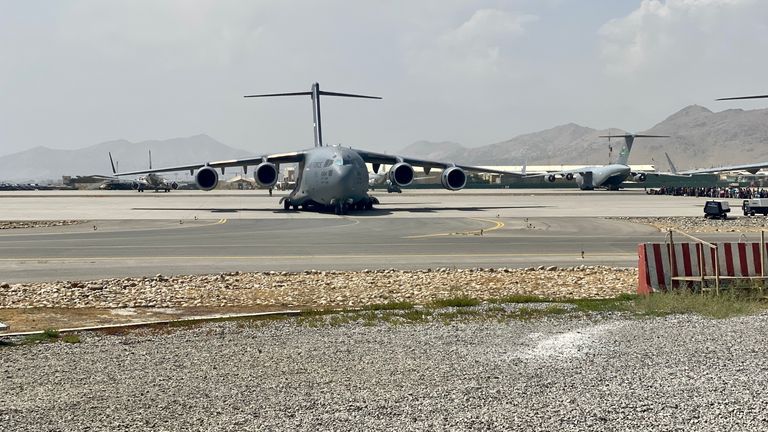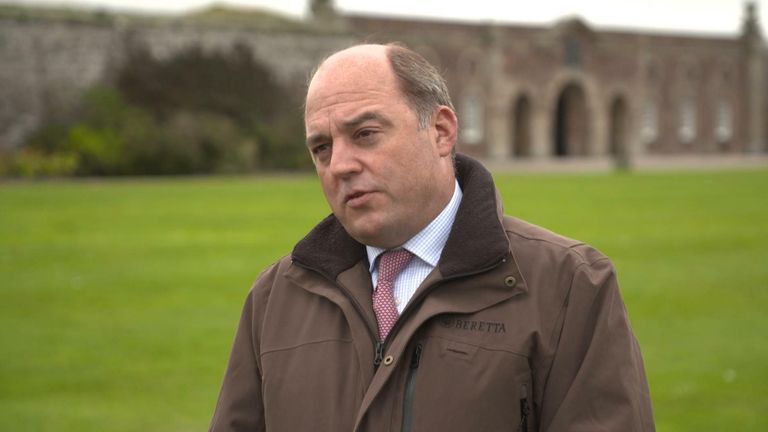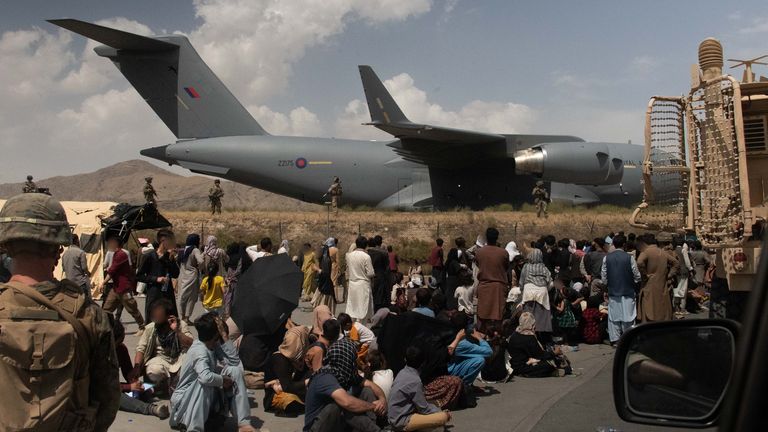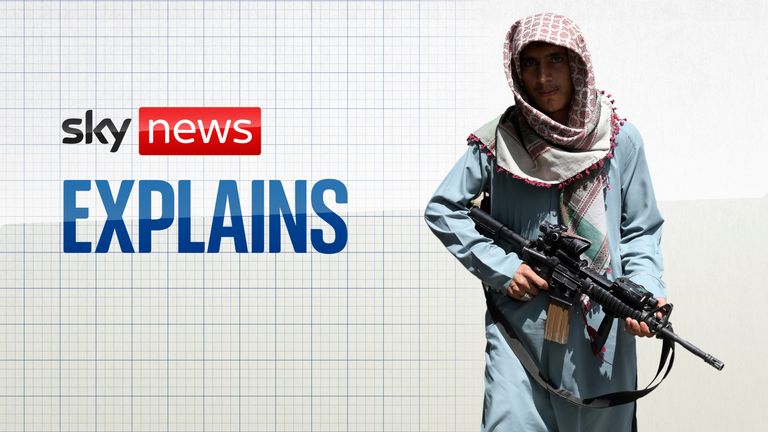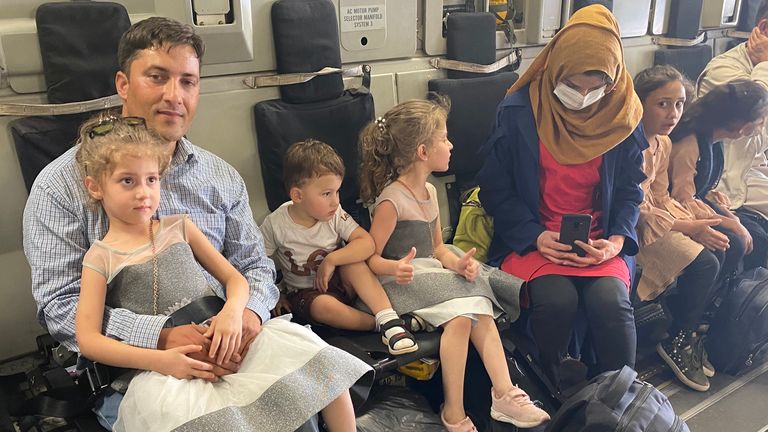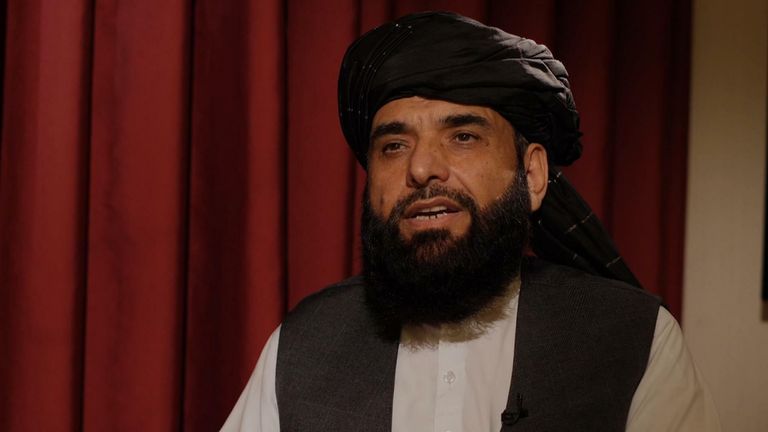It’s calmer outside the camp.
The people, thousands of them, know that the processing that might get them on a flight to the UK can’t happen if there is a return to the chaos of the past few days.
In the morning sun, people call to us as we walk, pleading for a pair of eyes to glance at their applications, passports, visa, letters of recommendation, and – more importantly – to listen to their stories.
We stop often and give advice but in reality there is little or nothing we can do.
Afghanistan latest news – follow live updates
All the time we are shuffled to the side as convoys of people carriers, led by armoured cars, depart the camp gates, turn right, and head towards the airport, winding their way through crowds of would-be evacuees and hundreds of soldiers.
The people stare in envy.
Those cars are full of the people who have been designated fit to fly.
The convoys are the reason for the chaos, the despair and the deaths that have engulfed this tiny part of Kabul.
Nobody but the people who are on board know what the process is like.
So we asked to see the journey.
The people have been sleeping rough for days. When their number is called they stand, brush away the dirt and pick up a single bag – that is all they are allowed.
They are loaded up and begin, arguably, the most important drive they will ever take.
They pass through the heavily-guarded gates of the compound, where their status has been checked and confirmed, back into the territory of the Taliban and the wilderness of the thousands waiting for news.
To the right there’s a sewage canal where the Americans are in charge, a holding pen for people who might have the right paperwork.
This isn’t the hopeless line, it’s the hopeful zone, but it’s utterly awful.
The convoy moves through the soldiers of multiple countries looking for people with a right to enter – and then beyond – away from the queues.
We passed those who have been successful but are still waiting for a flight, temporarily living in what looked like refugee camps.
Suddenly it’s left behind.
Inside the wire we watched as the Royal Air Force started processing evacuees before boarding, with airport-style bag checks and security.
All the UK forces are trying to make it feel like an ordinary flight, conscious how much trauma every single person has endured.
Squadron leader Di Bird, in charge of all movements, is a tough, no-nonsense, commander.
Meeting her for just a few minutes, it was clear to me that she would have zero tolerance for nonsense.
She was checking that the men and women in her command were following explicit orders.
The order was to not wear body armour, to greet the evacuees cordially and to process them quickly.
Behind her tough forces exterior, her sentiment was warm and she was kind to the evacuees.
“This isn’t about getting masses of people, herding them together and getting on to planes – everything is about making sure we remember these our are friends, these are people that have worked with us for many years and we treat them that way,” she told me.
“So it’s about being dressed like this as much as possible [without body armour], it’s about showing them that we’re not scared, it’s about making sure that children are fed, that babies are looked after, that anything we do to reduce their stress levels and show them that they’re safe is at the heart of everything we do here.”
Amongst the evacuees I met five-year-old twins Asna and Sana in their party dresses. They were with their mum and dad and younger brother – the first twins spotted by the RAF in this airlift.
This is the start of their new life, although everything is clearly very strange, especially being checked with a handheld metal detector while they spun around.
Their father Nooragha Hashimi was a UK military translator in Helmand, working with the Royal Engineers.
This flight will save his and his family’s life for certain, but getting to this point had been terrifying.
I asked him if he thought he was at risk: “Yes – they [the Taliban] were gonna kill me.
“It was like everybody was scared [about] what they’re going to do, and the first time they’re saying we’re gonna do nothing [to] anybody, but nobody knows if it will be the same as 1996.”
The runway and apron are now full flow, this evacuation effort has to be because even though thousands have been moved, more need to be processed.
Behind the enormous transporter planes, rows of people wait to board, buffeted by the backwash of jet engines and propellers.
Lines of people are brought through and positioned, awaiting instructions from the loaders.
This is a huge operation but it’s still probably not enough – there simply may not be enough time.
We watched on as the latest British flight boarded, the passengers, including the twins, were guided up the loading ramps.
They were seated along the sides before being directed into rows and secured for the flight using cargo straps – this is only the second time in the RAF’s history they’ve had to do this. The last time was in South Sudan.
As we waved goodbye to Asna, Sana and their family on board, their dad told me they had no plans yet, other than to move to southern England where they believe the weather is better.
After what has happened to their lives in a week, just worrying about the weather has to feel great.
